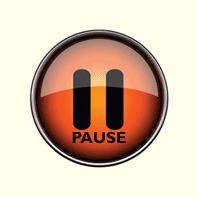| |
Writing inspiration
 Writing
a novel is hard work. Until you try it, you might not fully
appreciate just how much effort goes into a full-length manuscript.
The first novel I wrote was a 200,000 word sci-fi tale about
a bunch of astronauts returning to Earth (after months in suspended
animation) only to discover that everyone had had the bad grace
to die (cue deserted London streets and deathly silence and
rats and the stench of bodies, etc). Writing
a novel is hard work. Until you try it, you might not fully
appreciate just how much effort goes into a full-length manuscript.
The first novel I wrote was a 200,000 word sci-fi tale about
a bunch of astronauts returning to Earth (after months in suspended
animation) only to discover that everyone had had the bad grace
to die (cue deserted London streets and deathly silence and
rats and the stench of bodies, etc).
Lovely.
As I recall, the book took
a couple of months to complete, and when it was done I realised
that it was too big (and a
half). But I didn't want to cut it, partly because I was mentally
exhausted, and partly because having just written it, the last
thing I wanted was to take a hatchet to it (can you spot an
immature writer anywhere in the vicinity?).
So I started another novel.
Which might sound odd, until you understand that each novel
you write has a certain amount of energy and enthusiasm attached
to it (or embedded in it). So I cruised on that for a while
and somehow managed to grope my way through the second book
(this time a private-eye story; it took just a month. Something
of a personal record).
Then, on book three, things
got shaky. That energy and enthusiasm petered out early on and
I was stuck. Blocked, if you prefer. I should have paced myself
better. I didn't realise then just how easy it was to lose 'the
writing buzz', and when it's gone (with respect to a particular
book), it's hard to get it back.
But it can be done.

Want to read more?
There are over 25,000 words of
writing tips and advice on my website. I've spent months
writing these pages, and years refining them. I'm happy to
share my professional knowledge with you. But like everyone
else, I need to capitalise on my skills and efforts.
For just £1.99 I'll send you my entire
MR EDIT'S WRITING ADVICE FOR AUTHORS as a .pdf file. Just follow the link below, or above, and you'll be taken to PayPal. You don't need an account; just a credit card or a
debit card.
You'll generally receive my writing
guide within an hour. But occasionally technical glitches
from PayPal delay this for up to 24 hours.
Either way, you'll receive 25,000
very helpful words that will make you a better writer, will
give you fresh insight into your work, and
will improve the chances of a literary agent or publisher
accepting your manuscript.

Mr Edit
YouTube videos
Meanwhile, here are
some of my You Tube videos that might be of interest to you.
Hope you enjoy them.

Mr Edit. Let's talk about dialogue
https://youtu.be/KG0CLm1S9Rs

Mr Edit. Pitching fiction to a literary
agent.
http://www.youtube.com/watch?v=yy698w2Ooc8

Mr Edit. 5 Minute Fiction Fix.
https://youtu.be/y6OPUfcDH90

Mr Edit. Let's talk about tautology.
http://www.youtube.com/watch?v=_zhoBLImV6U
Links for writers
Preditors
& Editors. Here's where you can check out the credentials
of literary agents and publishers. A must for any writer.
http://pred-ed.com
Creative Helps.
Helpful resource for the creative community. Articles, links
and tips.
http://www.creativehelps.com/products.htm
Nick Daws'
Writing Blog. Lots of useful posts on all aspects of writing,
both for print and online, plus a guest post for anyone who
wants to make a contribution. Check it out.
http://www.mywritingblog.com
|
|
Creative writing
●
Writing tips
●
Plotting a novel
●
Finding a literary agent
●
Choosing a literary agent
●
Agent query letters
●
Inspiration for writers
●
Rejection letters
●
Manuscript critique
●
5 minute fiction fix
●
Proof reading
●
Writer's block
●
How to get published
●
Active & passive voice
|
Special features

Darley Anderson,
top UK literary
agent, on books,
publishing and success

Zoë Sharp,
creator
of the
action-packed
Charlie Fox series of books

Jeff Kleinman,
New York literary agent,
talks shop

Crème de la Crime:
An interview
with
Lynne Patrick,
publisher and
managing editor of a smaller—but
essential—British
publishing
house.
Inspiration
tips
Tip 1
Set a daily goal, and achieve that goal. Just force
yourself into the habit of writing something. If you haven't
got the motivation to boot up the computer, just scratch some
stuff on a sheet of paper. It might be an idea for your novel,
or a scene, or some character detail; just write it. Push the
story on. Keep it moving.
Tip
2
If you travel on a train or bus to work, try writing on the
move. It's another cheap ploy, but the act of physically moving
along can help keep your mind moving along. It gives you the
very real sense that you're not staying in the same place -
which is what you're fighting against. Stagnation. So if you
can't move mentally, try moving physically. It might work.
Tip
3
Remind yourself daily that your favourite authors are ultimately
as ordinary as you or me. Yes, they achieved the success you've
been craving for. But they're all just people with the same
anxieties as yourself. I've met a number of celebrities over
the years, and what unites them is their ordinariness. Writers
are no different. They're just people. Fallible. Riddled with
doubt. Prone to fits of despair. But such professional authors
got to where they are by sheer hard graft and dealing with negativity.
Follow their lead.
Tip
4
Try comedy. Good comedy is intelligent writing. Good comedy
also releases tension. So if you have a comedy club nearby,
try a regular night out. If not, rent a comedy film (something
that you know is going to make you howl with laugher). And after
the comedy. Writing induces tension, so release that tension
in whatever way you reasonably can (yes, try that too ...)
Tip 5
If you feel the creativity-well drying up, stop and look
back through your novel for the source of the problem. Often,
your subconscious mind has spotted a problem that's sapping
your enthusiasm. Sometimes a simple amendment to the manuscript
can really refresh it. Or it may be that your character's motivation
is weak. Or you may have overlooked a crucial twist, or fact.
If you isolate that and rectify it, the rest of the novel instantly
feels stronger and refreshed. In short, your lack of creative
energy may really be due to something you think you've
put behind you rather than a fear of what lies ahead. When I'm
finding it hard to move forward, sooner or later I start looking
back, and as often as not I spot the problem. So look ahead
constantly, but keep an eye on your tracks.
Tip 6
Work out specifically what you're trying to achieve in a
section of your writing and check that you've achieved that.
This goes back to Tip 1. If, for instance, you need to
move your character from point A to point B, ask yourself if
you've achieved this objective. If you have, move on (later,
you can firm up the soft spots). But a methodical approach like
this might reveal that you simply haven't achieved what you
set out to achieve.
You might consider
actually writing down your goal at the beginning of each chapter.
For instance; In this chapter, my hero discovers that he's
being stalked by a work colleague and realises that he's in
a very vulnerable position ... You can add to this. But
just make sure you've ticked off the main points. And once you've
achieved this, mark it down as a success. That means literally
mark it down.
Goal achieved.
Write the note (or notes) at the end of each chapter. You
can remove them later, or leave them on your back-up copies
(you do have back-ups, don't you?)
Tip
7
Rejection is the norm, not the exception. You may find your
enthusiasm being sapped because, halfway through your second
novel, you've just received a rejection on your first. It's
like having a puncture. It's deflating. Dispiriting. All you
can do is be positive and tell yourself that that rejection,
paradoxically, has taken you another step closer to your goal.
See
But they rejected me!
Tip 8
Cut the clever stuff (I need reminding of this daily). By
this, I mean reduce the smart, hip, cool writing and focus on
the story. Most writers show-off at some time or another. But
this self-aggrandizing can be counter-productive. You need to
be a little more humble and businesslike. If you've got a truly
great phrase or piece of dialogue, of course you should use
it. But don't let being a smart-ass get in the way of forward
momentum.

Back to the top
|